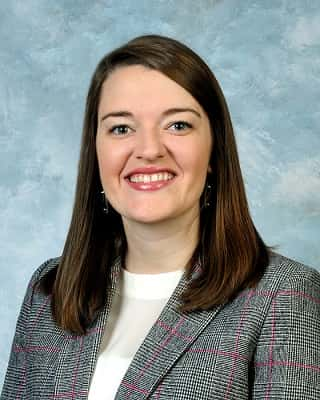
Interim committees met and discussed various issues throughout the state last week.
A measure that, because of the urgency of addressing COVID-19 in the 2020 Regular Session, did not make it through both chambers was revisited in this month’s meeting of the Interim Joint Committee on State Government. My colleague, Rep. Kimberly Moser, testified about HB 168, which related to legislative ethics and outlined steps for sexual harassment or discrimination complaints made against any legislator or lobbyist.
Under the provisions of HB 168, there would be due process and the person being accused would also have legal representation and their voice heard. There would be a clear path for both the victim and the accused. While the bill did not make it through this year, for the first time in modern Kentucky legislative history, House leadership staff have a comprehensive personnel policy that includes this issue. The policy also addresses nepotism, confidentiality, and professionalism – setting a standard that Kentucky taxpayers deserve from the people who work for them.
Members of the Interim Joint Committee on Veterans, Military Affairs, and Public Protection heard testimony about a variety of veterans’ issues including the use of Veterans Treatment Courts.
These specialized courts focus on the unique needs of veterans with substance abuse and mental health problems. Some of the men and women who serve our military can sometimes struggle with the transition to civilian life and suffer with mental health substance abuse problems.
The Kentucky Court of Justice launched its Veterans Treatment Court Program in 2012. Members of the committee were also briefed about the Jobs for Veterans State Grant program. This program award federal funding to eligible workforce agencies to assist in hiring staff to provide career and training-related services to veterans and help employers fill their workforce needs with those seeking jobs.
The Interim Joint Committee on Health and Family Services discussed the difference in the prevalence of diseases and health outcomes based on social, regional, and community factors.
Every region of our state has a unique makeup, but overall Kentucky deals with high cancer rates, high rates of adult obesity, and high rates of childhood asthma. All of this plays a large role in life expectancy, which Kentucky ranks below the national average.
This portion of the committee meeting further emphasized the need for our state to take proactive steps to ensure that everyone has access to the resources needed to lead a successful and healthy life.
As we continue to recover from the outbreak of COVID-19, we must prioritize public health policies that promote the health and well-being of the people of the Commonwealth. The committee also discussed the implementation of federal CARES Act funding in our state’s long-term care facilities, which has substantially helped protect our state’s most vulnerable populations.
There has been an increase in Medicaid funding for facilities with a COVID positive patient. There has also been a significant allocation made to increase testing of patients and staff to help stop the spread of COVID from someone who may be asymptomatic.
The committee also heard the news that the restrictions on visitation for long-term care facilities residents will soon be relaxed. This is especially meaningful for patients who have been isolated from their families since early March.
The Interim Joint Committee on Economic Development and Workforce Investment discussed the impact of the COVID-19 on employers.
To ensure a prosperous economic rebound the state must address issues like a drained unemployment insurance fund, childcare facilities shutting down, dwindling workforce participation, and legal liability.
After months of unprecedented unemployment insurance claims, Kentucky’s trust fund balance is zero. Because of this, the state has borrowed more than $800 million from the federal government. The repayment for the borrowed money will fall directly on the backs of Kentucky employers. Businesses could see a massive tax increase in 2021, some seeing a 2,000 percent increase in certain situations.
The Kentucky Chamber and many others have asked the Governor to use federal aid to help pay back at least some of the loans to ease future burdens on Kentucky’s employers. Unemployment issues have also caused the state to be ranked 49th out of 50 states regarding workforce participation. Before the pandemic, Kentucky ranked 40th, but I feel we can still do better than that. We must do better.
And finally, the Interim Joint Committee on Tourism, Small Business and Information Technology received an update on how COVID-19 has impacted rural hospitals.
As this pandemic became more widespread, it has proven just how crucial rural hospitals are. These hospitals are an essential part of a community’s lifeblood, especially during a pandemic.
Members also heard testimony from representatives from broadband services who shared possible ways to help improve internet accessibility across the state. Many Kentuckians are working remotely while their children are also using the internet for school. We have also seen a dramatic increase in telehealth and the use of technology in our court system.
We must have high-speed, high-capacity fiber optic cable for providers to utilize if we will ever see tangible improvements in this area. This is a significant issue that we cannot ignore. While the administration has granted $8 million to help increase access, a meaningful and significant allocation of CARES funding from the Governor would ensure the construction, development, and implementation of broadband infrastructure in underserved areas Kentucky.
Please contact me with your thoughts and ideas on these and other topics we may address during the 2020 legislative session, which will begin on January 5. I can be reached at home anytime or through the toll-free message line in Frankfort at 1-800-372-7181. You can also contact me via e-mail at Samara.Heavrin@lrc.ky.gov. You can keep track of committee meetings and potential legislation through the Kentucky Legislature Home Page at legislature.ky.gov.
Rep. Samara Heavrin








